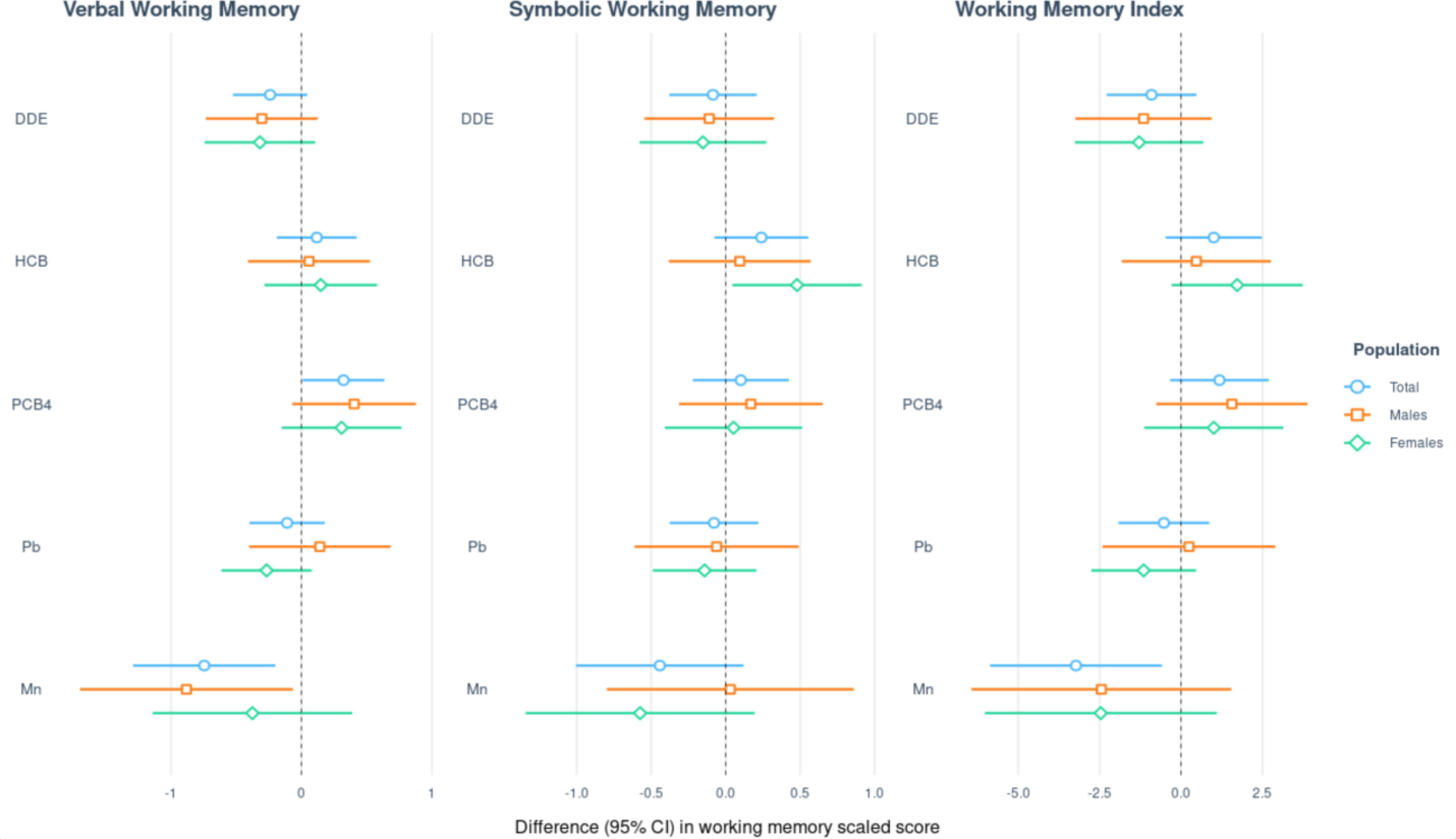Figure 4.

Sex-stratified and overall results of multivariable linear regression analyses (difference in points associated with a twofold increase in exposure and 95% CI)1 assessing the relation of prenatal exposure to a five-chemical mixture with Wide Range Assessment of Memory and Learning, 2nd Edition working memory scaled scores among adolescents in the main analysis group2.
1Exposures have been log2-transformed and models have been adjusted for all listed exposures, child race, sex, age at exam, year of birth, and HOME score; maternal marital status at child’s birth, IQ, seafood consumption during pregnancy, and smoking during pregnancy; maternal and paternal education and annual household income at child’s birth; study examiner. 2Main analysis group: complete working memory outcome, covariate and exposure data for DDE, HCB, PCBs, Pb and Mn. Total n=373; Males n= 179; Females n=194.
Abbreviations: DDE: dichlorodiphenyldichloroethylene; HCB: hexachlorobenzene; ΣPCB4: Sum of 4 PCB congeners (118, 138, 153, 180); Pb: lead; Mn: manganese.
